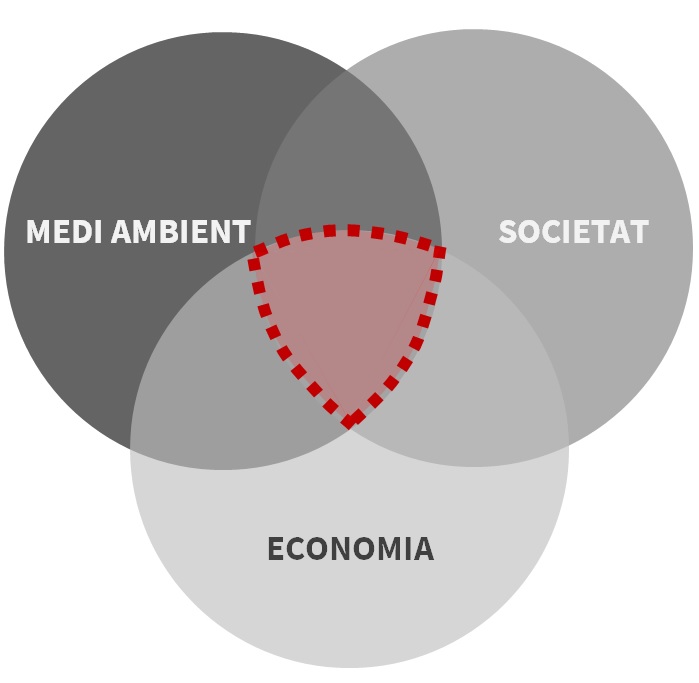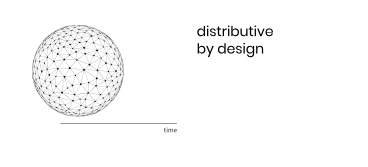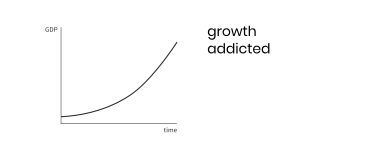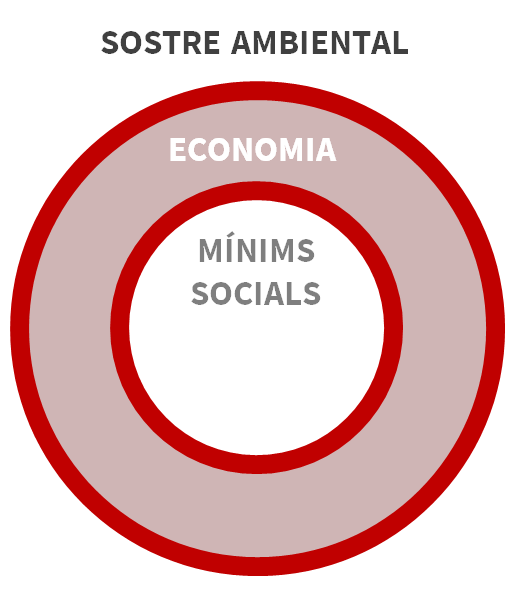Why is it innovative?
This change of paradigm proposes moving from an economic model based on the undefined growth of a single monetary indicator, the GDP,
to another model that allows us to thrive, something which involves taking into consideration the well-being of society and the planet, and must therefore be designed to be distributive and regenerative. The achievement of these objectives is measured via a set of social and ecological indicators.
As Kate Raworth affirms: “We have an economy that grows, whether we thrive or not, and we have to move to an economy that allows us to thrive, whether it grows or not”.
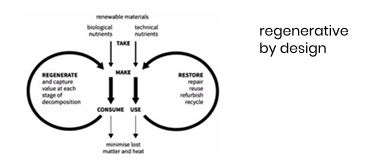
This new concept involves evolving economic thought and repositioning the role of the economy within the concept of sustainable development, changing from the model that gives the same weighting to the economy, people and the planet, to another where the economy is at the service of people, guaranteeing social minimums for all, and limiting growth to an ecological ceiling.
Doughnut economics is a change of paradigm, which involves understanding that our current lifestyle is not sustainable, either environmentally or socially, so that society must change its mentality and the way it works in order to incorporate the culture of limits as an essential feature.
The aim is for all urban stakeholders (authorities, organisations and the general public) to become aware that we need to change our lifestyle and agree on how each of these stakeholders must operate in order to reposition ourselves within the Doughnut.
